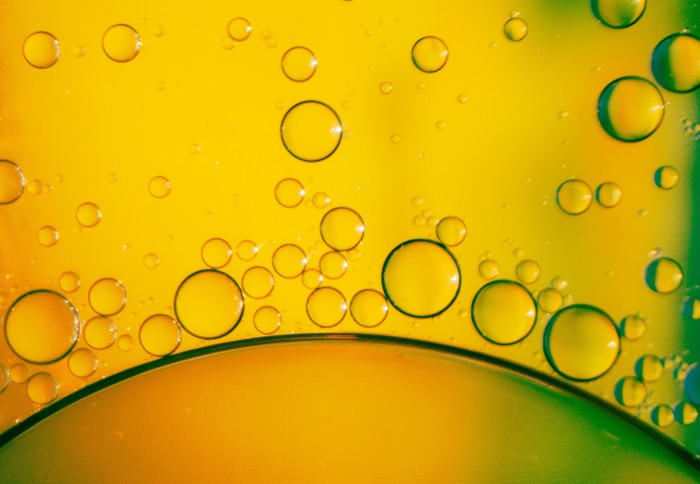Reusable sponge offers cheaper, sustainable solution for oil wastewater clear up
by Gemma Ralton

Scientists have engineered a reusable sponge that will help clear up wastewater generated from the oil industry, in line with Net Zero targets.
Researchers from Imperial College London have created a new sponge to help clear up wastewater from oil extraction processes like fracking and to fill the high-temperature water technology gap in the oil industry, a development that will contribute to ensuring Net Zero goals are achieved.
"This study comes at a crucial time for the oil industry. The new surface engineered sponges will help to fill the high-temperature water technology gap in the oil industry.” Dr Pavani Cherukupally Department of Chemical Engineering
In the study, published in American Chemical Society, scientists from the Department of Chemical Engineering designed sponges that more rapidly absorb crude oil droplets from wastewater at higher temperatures.
The new sponge design was over 92% effective at removing oil droplets from contaminated wastewater and was able to quickly be rinsed with solvents, enabling it to be reused.
Soaking up the benefits
Steam-based oil extraction processes, or fracking, is a cost-efficient method of extracting fossil fuels from the ground to meet global energy demand. However, it generates large volumes of contaminated wastewater alongside significant environmental and public health impacts.
In current clean-up processes, the wastewater is being cooled from its high discharge temperature and treated using slow and energy and environmentally wasteful processes, making wastewater remediation expensive.
Surface-engineered sponges
Surface-engineered sponges are created by coating porous substrates such as thermoplastics or thermosets, with nanomaterials. Thermosets are substances that set permanently hard when heated.
In this study, scientists used an inexpensive material called polyurethane which is a similar sponge to that used in household kitchens or in mattresses. They coated this with nanosilicon capped with alkyl groups.
Thermosets are ideal materials for absorbing oil in high temperatures as they have strong crosslinked structures, meaning they exhibit excellent thermal and mechanical stability and can withstand high temperatures.
Therefore, surface-engineered sponges that are made using thermosets offer a tecno-economic solution that is more environmentally friendly and useful for fast wastewater remediation.
Lead author Dr Pavani Cherkupally said: “This study comes at a crucial time for the oil industry. The new surface engineered sponges will help to fill the high-temperature water technology gap in the oil industry.”
Co-author Professor Daryl Williams added: “The design of this new class of nano-functionalised polymer sponges offers some exciting industrial processing opportunities for reclaiming fracking effluents and associated environmental clean-up.”
Moving forward
In the study, the performance of the new surface engineered sponges was tested using simple crude oil and water systems, whereas fracking water contains various salts, surfactants and other chemicals. Therefore, the performance of the sponges will now need to be assessed against more complex water chemistry. A sponge degradation study also needs to be carried out in order to determine the service life of the sponges.
Dr Cherukupally said: "Fracking will continue to play a critical role in meeting global energy demand for a few more decades. Cost-efficient, circular high-temperature water technologies can dramatically reduce emissions in an energy efficient and feasible way which will help the industry sustainably achieve Net-Zero goals.”
“With the support from Science and Technology Facilities Council, we are studying the interfacial structure of the oil droplets with environmental conditions and complex water chemistries,” Dr Cherukupally added. “These insights will inform us designing sponges with conforming surface properties for their capture and recovery from the real-world wastewater.”
The next stage of the work is being conducted in collaboration with Dr James Doutch at Rutherford Appleton Laboratory and Professor Alex Routh at BP Institute and the University of Cambridge.
-
‘Reclamation of Oily Wastewater at High Temperatures Using Thermosetting Polyurethane-Nanosilicon Sponges’ by Cherukupally et al., published on 25 October 2021 in American Chemical Society.
Article text (excluding photos or graphics) © Imperial College London.
Photos and graphics subject to third party copyright used with permission or © Imperial College London.
Reporter
Gemma Ralton
Faculty of Engineering